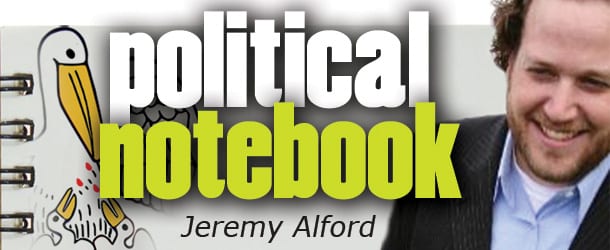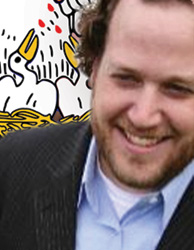On Capitol Hill, where you sit is who you are. And Congressman Charles Boustany, R-Lafayette, has a pretty nice chair waiting for him in D.C. He was just chosen to lead the Ways and Means Committee’s Tax Policy Subcommittee.
With House Speaker Paul Ryan and Ways and Means Chair Kevin Brady moving ahead with tax reform, Boustany will have a key role. And he’ll play it well, given his past forays into tax policy and the national headlines they created.
Attention Turns To 2016 Ballot
After being handed the smaller share of the votes in the governor’s race, U.S. Sen. David Vitter told supporters he would not seek re-election next year on the 2016 ballot.
That decision has ramped up speculation about the race, with Congressman Charles Boustany, R-Lafayette, saying two days after the runoff election that he’s preparing to make a major announcement “very soon.”
Boustany, Treasurer John Kennedy and Congressman John Fleming, R-Minden, have all said they would be interested in running for the Senate seat if Vitter doesn’t. Retired Air Force Col. Rob Maness, who ran for the U.S. Senate last year, has said the same.
Friends of Public Service Commissioner Scott Angelle, who ran third in the race for governor, is said to be sizing up a Senate run in 2016 as well. But he’s also expressed some interest in the 3rd Congressional District should Boustany decide to go through with his plans to run for Vitter’s seat.
Aides to Gov. Bobby Jindal say the former presidential candidate is in no way interested in running. But other names have been floated. Sources say former state Sen. Troy Hebert, a registered independent, is being encouraged to run for the U.S. Senate seat next year. Hebert announced he will be stepping down as commissioner of the Office of Alcohol and Tobacco Control at the end of the year.
Being encouraged to run is Zach Dasher, the Republican cousin of the “Duck Dynasty” family who was narrowly edged out of the runoff last year in the 5th Congressional District.
National speculation on the Democratic side has focused on New Orleans Mayor Mitch Landrieu, who has told reporters he hasn’t ruled the race out. But he appears to be more focused on finishing up his current term and possibly playing a regional role in the upcoming presidential election.
Runoff Results Unkind To Incumbents
Twice as many sitting legislators lost their election bids in the runoff than in the primary races in October. Still, the increase in turnovers doesn’t quite signal a last minute anti-incumbent sentiment among voters in 2015.
Statewide, Attorney General Buddy Caldwell lost his re-election campaign, making him the second incumbent A.G. to be toppled in the past seven years.
Lawmakers went into this election cycle on the defensive, following a series of controversial votes that raised nearly $800 million in mostly temporary taxes.
The efforts by many to explain their votes as a saving grace for higher education, which was facing significant cuts in the 2015 regular session, may have helped head off a tough election season for a majority of the Louisiana Legislature.
After three sitting legislators failed to secure re-election in the primary, six were given their walking papers in the runoff.
Reps. Ritchie Burford, R-Stonewall; Henry Burns, R-Haughton; and Jeff Arnold, D-Algiers, were all defeated by legislative newcomers in their attempted moves to the state Senate.
In the state House, Reps. Joe Harrison, R-Napoleonville; Darrell Ourso, R-Baton Rouge; and Lenar Whitney, R-Houma, all lost their re-election bids.
Joshua Stockley, a professor of political science at the University of Louisiana at Monroe, said a higher volume of turnover would have convinced him of an anti-incumbent sentiment. But nine losses for sitting lawmakers — even in concert with a defeat for the incumbent attorney general — amounts to mostly isolated incidents.
“When you’re trying to switch over to a new chamber, like the representatives running for the Senate, they can be viewed as the incumbents sometimes. But they’re often running in radically different districts,” Stockley said. “They’re facing whole new constituencies, so they kind of become a new candidate again.”
Criminal Justice Advocate Headed To Baton Rouge
The U.S. Justice Action Network, a bipartisan group, recently released a poll showing that Louisiana voters overwhelmingly support reform of the state’s criminal justice system.
The group is expected to be an upfront stakeholder on these issues in Baton Rouge in 2016, and will arrive with resources for outreach and marketing.
Pelican Institute’s “Smart On Crime” campaign has already helped place a conservative face on the issue, due to president Kevin Kane’s involvement. The addition of the Justice Action Network could help create a high-profile agenda for the coming regular session.
Its poll found that almost 83 percent of Louisiana voters say the state’s criminal justice system is in need of some form of reform, with 56 percent saying it needs a major reform or complete overhaul.
This support cuts across party lines: 79 percent of Republicans support reform, along with 86 percent of Democrats and 88 percent of independents.
Nearly 79 percent of voters would eliminate mandatory minimum sentences and give judges more discretion in sentencing to take into account the circumstances of each case. Another 91 percent said Louisiana needs more rehabilitation and job training programs so offenders can better re-enter society after their sentence ends.
Lawmakers Warm To Budget Ideas
With an expected 2016-17 budget deficit of between $700 million and $1 billion — or possibly even more — House members are continuing to meet privately on fiscal matters ahead of next year’s legislative sessions, which are expected to be stacked with tough decisions.
In a recent meeting hosted by Rep. Steve Carter, R-Baton Rouge, 35 lawmakers, both Democrats and Republicans, gathered for briefings from economists and state officials.
In another meeting, the Committee of 100 for Economic Development presented information to a smaller group of lawmakers and other interested parties.
And Rep. John Schroder R-Covington, hosted a follow-up meeting to his October gathering at which lawmakers were split into two groups to explore revenue and expenditure scenarios.
Lawmakers who’ve been attending these meetings say there’s early interest in eliminating the federal income tax deduction, which would bring in $840 million for Louisiana.
There are a couple of problems with the idea, however, beginning with the fact that the benefits wouldn’t have an effect until the 2017-18 fiscal year, since the measure would require a constitutional amendment.
The other major problem would be convincing voters that they should agree to pay more in taxes. It’s that problem that has some lawmakers thinking about approaching the issue in concert with possible changes to tax rates.
Some House members are likewise taking another hard look at excess itemized deductions.
It’s so early in the process, lawmakers say, that it’s difficult to distinguish right now what amounts to real interest and what is academic interest — in other words, a true consensus is still a ways off.
More immediately, the state is looking at midyear cuts for the current fiscal year budget to the tune of $370 million.
There’s likewise a shortfall in the TOPS scholarship program of $22 million. Also, due to a loss of federal funding, the state health care budget is short $500 million. Both these shortfalls will eventually have to be addressed.
Lawmakers are expected to have at least one special session next year aimed at the structural problems that created the deficits, and broader fiscal issues, before they go into their regular session to craft the 2016-17 budget.
For more Louisiana political news, visit www.LaPolitics.com or follow Jeremy Alford on Twitter @LaPoliticsNow.














Comments are closed.